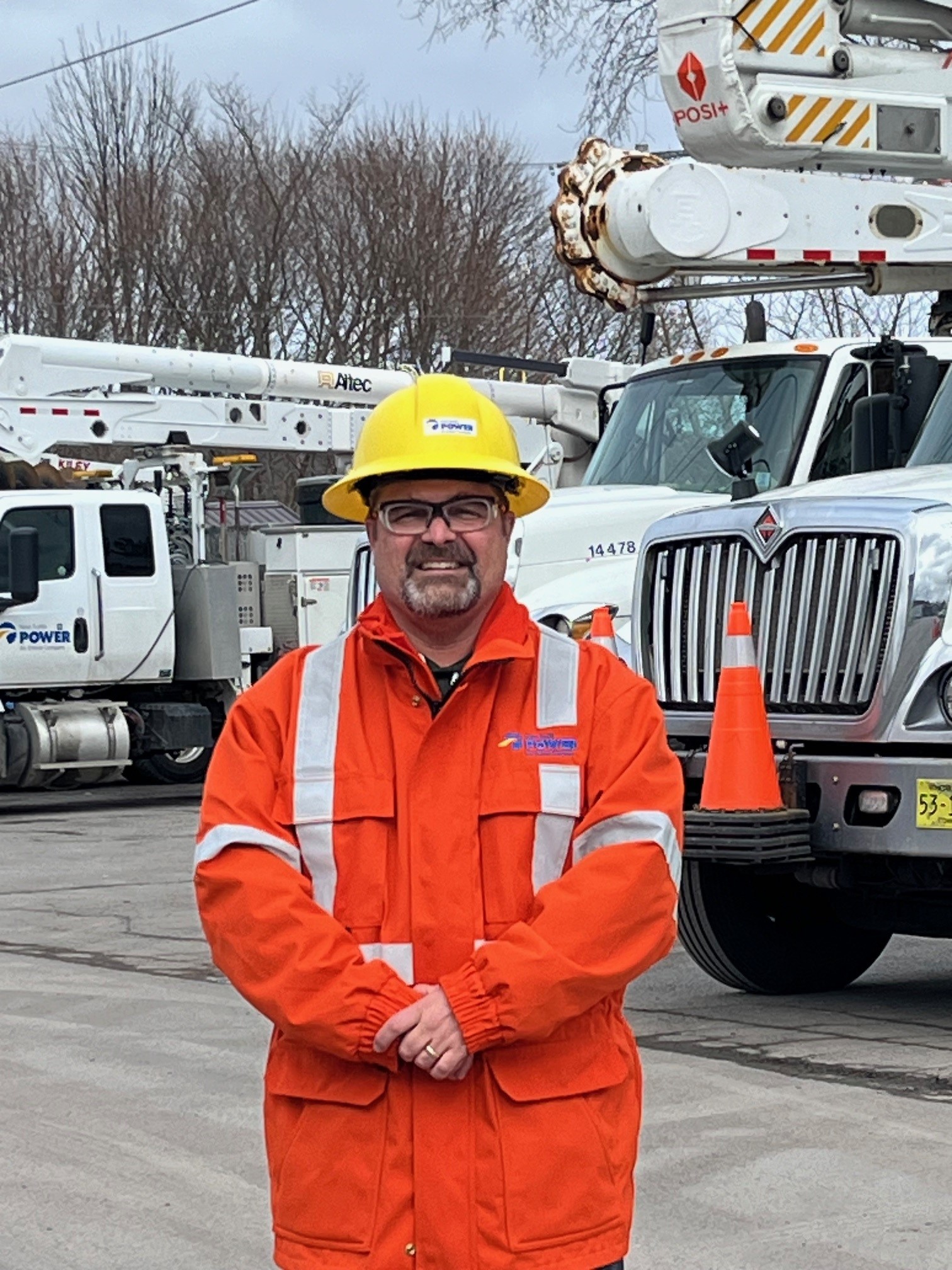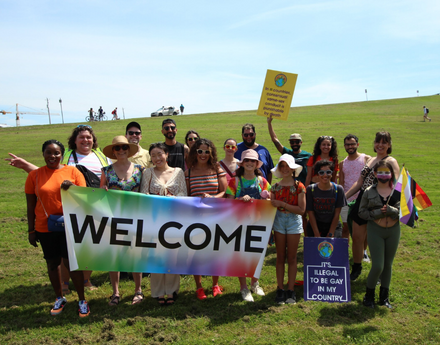The significance of African Heritage Month
February is African Heritage Month in Nova Scotia, also recognized broadly as Black History Month. It provides an important reflection opportunity to celebrate the culture, legacy and achievements of people of African Descent—both past and present within our communities and beyond.
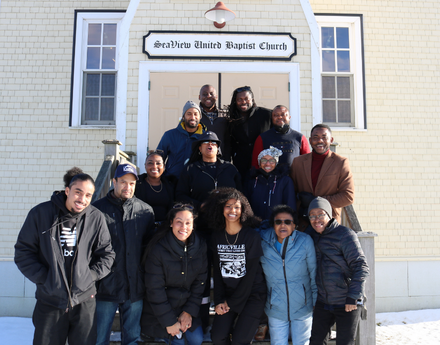
This year’s African Heritage Month provincial theme: “Seas of struggle – African Peoples from Shore to Shore” outlines the struggles of people of African descent, faced from the shores of Africa to the shores of Nova Scotia. It recognizes that the one thing that has remained constant in that history is the Atlantic Ocean. The theme explores the struggle and adversity that was overcome and examines the effects of slavery and sea faring on African Nova Scotians.
For over a hundred years, the African Nova Scotian community resided in Africville. Located on the northern shore of Halifax Harbour, the community was destroyed in the 1960s to make way for industrial development. Forcibly relocated, the former residents of Africville and their descendants were scattered. This is an example of the “urban renewal” trend that destroyed similar neighbourhoods across Canada.
After a visit to the Africville Museum at the beginning of African Heritage Month, we chatted with two members of the Black Employee Resource Group at NS Power: Ann Wilson, Contract Management Analyst, and Ibimina Koko, Continuous Improvement Engineer. They shared with us their own experience, what this month means to them and how it should be recognized.
What is the significance of African Heritage Month to you?
Ann: I still refer to it as Black History Month, as I always have done my entire life. As Black people eight generations deep, for us, celebrating Black History Month meant celebrating ourselves. It felt like it used to be only about me as a Black person; now it's more encompassing and feels like one huge family.
Black people here in Nova Scotia don't necessarily all know where they're from. There's no way for us to know. Obviously, our ancestors were slaves, but unless we do a DNA test, we are of African heritage but don't know what makes us African. That’s why we've always celebrated Black History Month on the surface because we're black. It means everything to us—it always has.
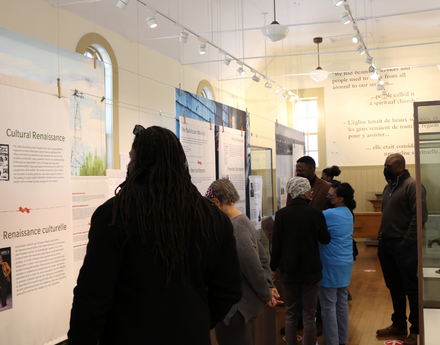
Ibimina: We have a similar struggle, but the way it manifests itself is a little different. I’m from Nigeria—that’s where my ancestors are from. When I moved to Canada, I was introduced to the incredible community of Black people here in Nova Scotia.
Nigeria was colonized by the British—it was occupied by colonists who exerted their authority on the locals they gained forcefully and by unjust means. That was colonialism, but then there's the slavery aspect. They're not the same. In terms of the struggles of Black people in England, Europe and the Caribbean, they manifest differently.
During African Heritage Month, we get the opportunity to come together and learn about the different manifestations of this struggle. This year, the theme is ‘Seas of struggle – African Peoples from Shore to Shore.” That highlights the slavery aspect, which affects all Black people to this day.
When you visit museums in England, you see then Benin Bronzes—lots of pieces, materials and precious artwork from Nigeria, for example, which are no longer in their home country. The sea was the mode of transportation to bring slaves all the way from Africa to the shores of Europe as well as the Americas.
So, African Heritage Month for me is an amalgamation of all our struggles into one pot to celebrate how far we've come and to reflect on the past. There's a lot of learning to understand the experience of Black people that are here.
Can you talk about the impact the Africville Museum had on you?
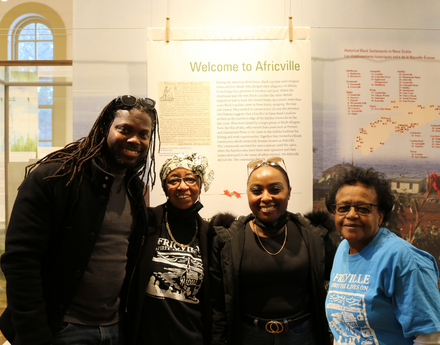
Ann: The spirit of the Africville community still lives in the Africville Museum, and I do believe there's value in visiting. It's very educational and profound when you're there listening to their stories—it's truly a wonderful experience.
Africville is still home to many because, although they don't have land on the basin anymore, they still have a community. It's dispersed but, when they come together, that community is still alive and well.
Ibimina: We're so fortunate to have the Africville Museum as a monument to what happened in the past. I cautiously liken our experience when visiting the museum to the blanket exercise, where you immerse yourself into the history of a group of people.
The Africville Museum provides a similar immersive experience that teaches the essence of what happened in a very engaging way. Through interviews and video clips, you get to watch and listen to the perspectives of both the victims and perpetrators of the dispersion of Africville. It's a moment that will be very difficult to forget, and I’ve longed for that kind of an experience—of people narrating their stories so eloquently and joyfully. It's a great way to encourage others to learn about Africville and participate in African Heritage Month.
What can non-Black folks learn from visiting historical sites like the Africville Museum?
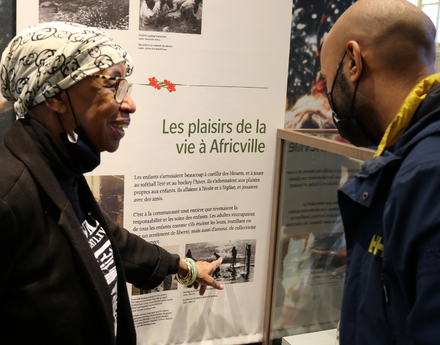
Ann: I don't want sympathy but for others to be able to understand what happened. I think if they learn the true story of Africville, they won’t be so harsh towards that community. It would definitely change the opinion of a lot of people about what happened in Africville, their minds and perspectives, by just knowing the truth.
Ibimina: There's an old proverb that says: ‘never criticize the way a person walks until you walk a mile in their shoes.’ And that’s the case with Africville. When you interact with the people of Africville, you get to know that these are real people; they have dreams and hopes; they have family and friends.
The dispersion that happened in Africville has no explanation other than the fact that it was a dehumanizing experience. They were made to feel incapable of making decisions that will affect their future.
As Ann mentioned, this is not a question of sympathy but of justice. One has to understand what really happened to the people of Africville. And the more people get to know about it and understand the experiences of the victims, the more prevalent the truth will be in people's minds.
The Black Employee Resource Group’s visit to the Africville Museum was quite impactful, and it’s one of many significant ways to recognize African Heritage Month.
David McDonald, an Emera employee, had this to share about his experience visiting the Museum with the BERG: “Having lived in Halifax for my whole life, I was always aware of the Africville community but never fully learned about its history. Walking through the museum was an eye opening experience for me. I learned about the people of Africville, and the many families and close friendships that thrived in their tightly-knit community. Hearing the stories of how these connections were broken, as people were forced from their homes, was jarring and served as a stark reminder that our history isn’t innocent. This is part of our city’s history - everyone should know about what happened in Africville.”
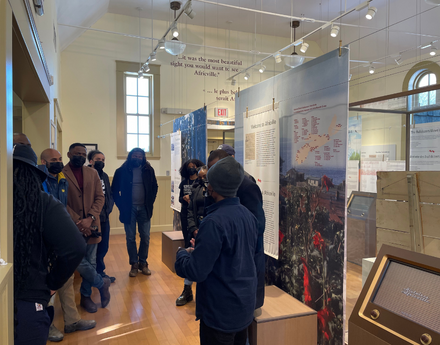
Established in April of 2021, the BERG is an internal network that connects Black employees across NS Power. The group provides support by giving a voice to the experiences of Black employees, educating the organization and peers about how they can contribute to feelings of inclusion and belonging, and helping to identify obstacles and opportunities that impact Black employees.
Throughout African Heritage Month, the BERG has been sharing additional opportunities for team members across the company to learn more and get involved:
Through a charitable donation to the Africville Museum, we’re helping advance the Africville Heritage Trust's mandate of preserving the history of Africville and educating everyone on the history African Nova Scotians.
Share This Post:
